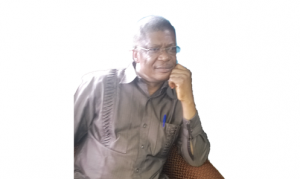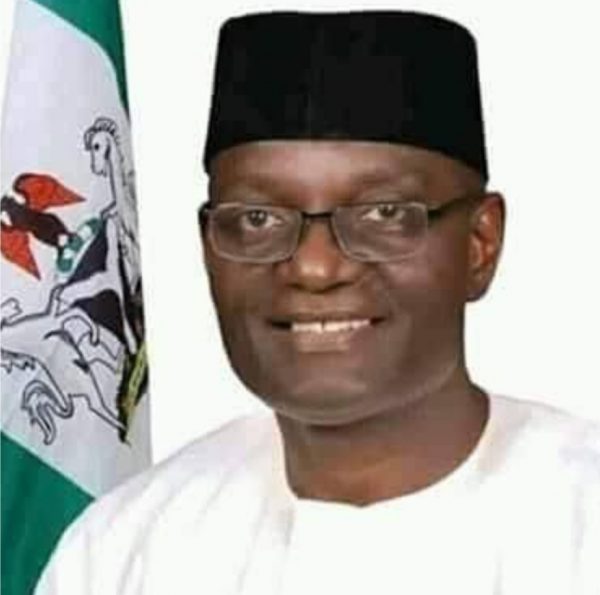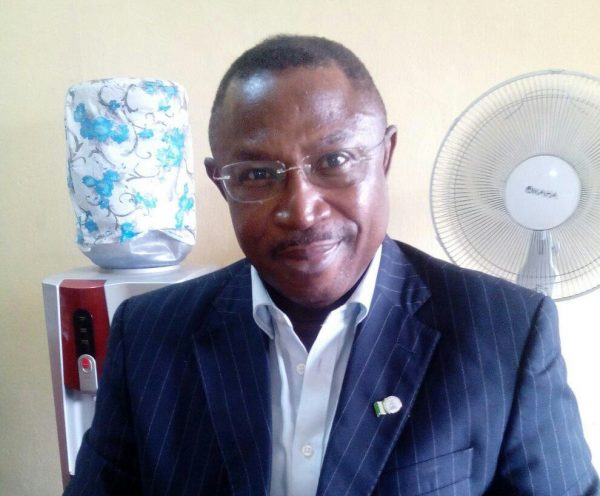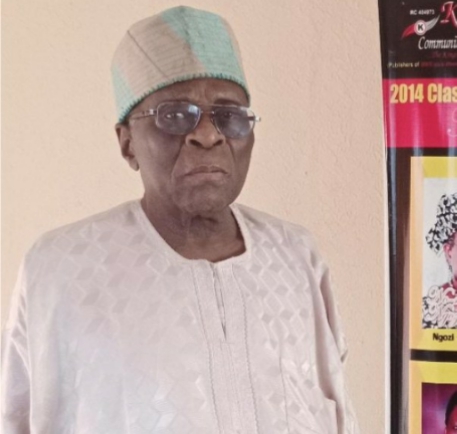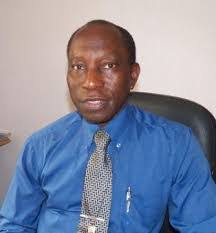Nigeria Hasn’t Paid Price For Efficient Maritime Academy- Ag. Rector
The Acting Rector of the Maritime Academy Oron, Mr. Mkpandiok Ante recently had a media parley and MMS Plus was there to bring you the management’s views on several pertinent maritime issues even as the MAN Oron boss unveiled some of the Academy’s plans, their modest achievements as well as the teething challenges.
Enjoy it:
Mkpandiok’s Rise To Acting Rector
I never dreamt that I would rise to the position of heading the academy or even be in a place like this to handle an institution like this. People talk about child of circumstance, may be my own case is different. I grew up as an administrator in the academy, I found myself were I am as a result of hard work. In fact, I started working under Dr. Uginear, who employed me and he was the first person to notice that I was hard working and he encourage me in many areas. So, I found myself growing up in the school, at a point in time I became the most senior admin officer to the registrar.
Let me address you from the ugly side of the academy, you might have heard it started some years back when two rectors of the institution died under strange circumstances. Along the line, I was also persecuted but I have a family and I would not want my wife to be running around for the children if I die.
I took counsel from my pastor on the things happening in the institution. He advised me to go ahead and complete what I started. I decided to come back home after working in the North and West, to serve in my home state and I am been threatened. It does not speak well. I felt I had to save my job, because I can’t belong to a system where people don’t believe in me. At a point, I even wrote a letter on my plan to leave; it was an old friend who advised me not to retire.
The mantel of running the academy came to me in December 2015, after the death of the then Acting Rector. I was brought in to take over; I was just not myself because before he traveled he handed over to me and after his death I had to carry on with the handing over. We have gone through several challenges but the current management is very dedicated, contrary to what you have been hearing from the press, we work together. We have management and academic board meetings, so nobody is saying they don’t believe in me or I don’t believe in this system. The academy is moving forward. Despite the sad events, issues and many problems, I still thank God for giving me the capacity in driving the affairs of the institution.
Challenges
One of the challenges we have is the issue of indebtedness to contractors. Some of them have taken us to court, written petitions to the presidency, some have written to Inspector General of Police, others wrote to the Independent Corrupt and other related offences Practices (ICPC), Economic and Financial Crimes Commission (EFCC) as well as the National Assembly, accusing us of corruption. We don’t want to defend what they said, because if you are owed and you are not paid, you can say anything that comes to your mind. As soon as the former rector died, all the contractors came that we should pay them and I pleaded with them to give us some time so we could look into the financial records and see how much we owe them and then look for way to pay, when we have the money.
I want to say something about the budgetary provision of the academy. It takes a lot to run a maritime academy. I’m saying this from a point of experience but in Nigeria we want to take first in everything. I don’t think Nigeria has paid the price to make the maritime academy work. Otherwise if NIMASA were not there, how would you give the kind of budget we get? When we go to federal account we are told that we are not supposed to come to the federal account that we have to go to NIMASA. We are tied to only NIMASA money.
The kind of equipment we need is costly and sophisticated and we need funds to cope. The money we get from NIMASA is not up to five (5) billion, how do you want us to cope? For some time now, we have had challenges over navigational equipment. We claim to be the giant of Africa, put in today’s maritime education and training, we don’t have any MV equipment. How do you train a world class seafarer without such equipment?
The Regional Maritime University in Accra Ghana came into existence with Maritime Academy, MAN Oron, today they can boast of these equipment but our academy is struggling with a mere functional venue. It may not totally be a management problem, but it’s the government. Most of the cadets end up not in doing their profession; they cannot make progress in their sea faring careers because there is no opportunity for them to go onboard a ship. This is one of the reasons we are lacking maritime professionals in the industry.
Seatime Issues
In maritime education and training, the emphasis is not on paper qualification, but we have what we call certificate of competency. How competent have you been? This competency is part of what is required to know what you can do. This is why even if you have a job and you have worked for some time, before you make progress, you have to go back to sea and stay for 24 months, when you come back you take the CV exams. That is how you can make progress; but where are the facilities here in Nigeria?
The Headway
The Nigerian government especially through the national assembly should address the issue and assist the sector to grow. They ought to have come out with legislations that compel ship owners doing business in Nigeria to at least take two cadets for sea training. Whenever I look at our sector, it seems like a mockery of our efforts in the past. Let us not forget that that if we want to take Nigeria to a world class standard in ferry business, we must do something about sea farers.
The few cadets that have left the academy for abroad are making names there. We had the privilege to have read a letter of recommendation on a shipping company in Singapore, commending a cadet trained in the academy. He was offered employment but today, I don’t think the story is the same.
The current management has decided to go back to the drawing board to see what actually happened over the years and make our input to the government to ensure that things are done rightly. This is what we have geared our efforts to achieve presently. We are trying to make all stakeholders involved in what I call ‘rebranding’. You would have to rebrand your product to be able to sell it faster.
We have received several disheartening messages from the industry stakeholders but we want Nigeria to give us two years and see the kind of cadets we will graduate. I will not seat in my house and allow this crop of Nigerians to be wasted not trained and put papers in their hands. We want them to be certified mariners, so we want the government to assist us especially through funding and the money will be used for the purpose it was meant for.
Our mission today is to make the academy conducive for everybody irrespective of where you come from. We want to leave a good story behind at the end of our tenure and we believe that in a very short period of time, we would make a commendable achievement such that even the cadets that will pass under us will know that they have been to school.
Acquiring Vessels
The kind of ship we want is called voyage going vessel; not for near coaster or fishing trolleys. It is not just acquiring the ship and staying there, but who would manage the ship and what kind of business do we put it to?
If we have a training vessel that should not stop the stakeholders such as shipping firms and ship owners from taking our cadets and placing them onboard vessels. They would have to do this as a form of Corporate Social Responsibility to compliment our efforts. For example, the number of cadets we have on ground cannot go on board a ship at a time but they all need to progress at the same time. The cadets want to go because their colleagues are becoming chief engineer so they all want to do it. Everybody wants to go onboard at same time. Therefore, if our ships can take may be for a whole year one hundred; the others can be placed on other vessels belonging to the private ship owners to compliment our efforts.
In South Africa for example, there is a marine training fund there and a cadet would have a choice of either to first go onboard vessels for shipping before he comes to school. Mediterranean shipping companies with fleet of ships will take their cadets to learn as trades men. Therefore, the use of training vessels must also involve stakeholders.
We won’t say because we have a training vessel other stakeholders won’t have a role to play.
By Austin Ellah

